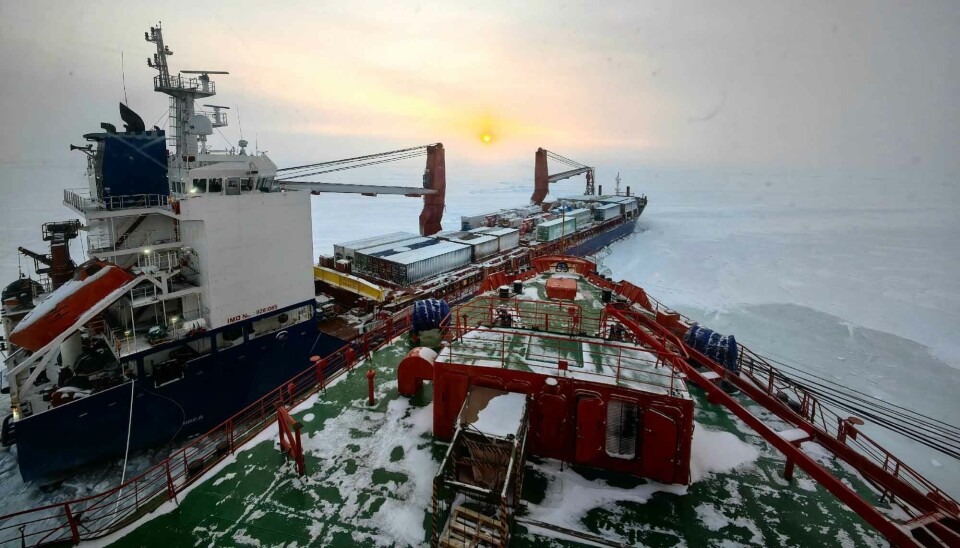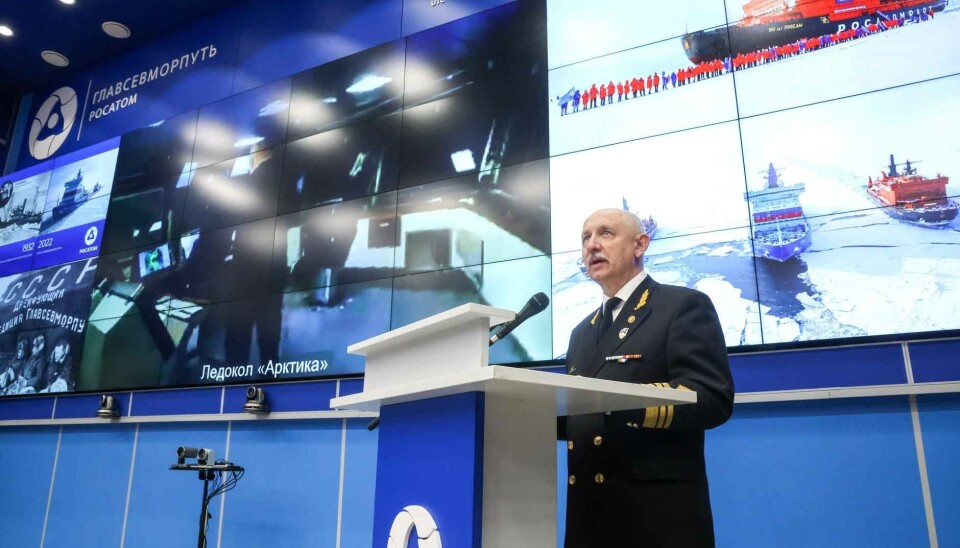
Icebreaker operator: "We are seeing a more complicated situation with sea ice"
According to Russia's Northern Sea Route Administration, sailing thought icy Arctic waters will not become any easier over the next 25 years.
The nuclear icebreaker base in Murmansk was in the centre of world attention as it on Friday hosted a meeting with Russian ruler Vladimir Putin.
The belligerent dictator visited Atomflot as part of his stay in Murmansk. On the agenda was Arctic infrastructure, shipping and the Northern Sea Route. And military developments and war.
In a remarkable move, Russia's newest submarine, the multipurpose Yasen-class Arkhangelsk, had been transferred to the civilian icebreaker base in order to facilitate a visit by the commander in chief.
Vladimir Putin has for the past decade devoted big attention to the Arctic and the development of the Northern Sea Route (NSR).
At least 80 million tons of goods was to be shipped on the route by year 2024, the Kremlin demanded.
The target was not reached. Russian ships in 2024 transported a total of 37,9 million tons on the NSR.
According to the Northern Sea Route Administration, a key reason for the failed results is the sea ice situation in the area.
And shipping through the remote and icy region will not be any easier over the next two decades, leader of the Administration told Putin during his visit.

"It must be said that we over the past years have witnessed a worsening of the ice situation, we have gotten more complicated conditions," said Sergei Zybko.
"Although we often hear about [global] warming, that the Arctic sea ice is melting, new studies by the Arctic and Antarctic Research Institute do not confirm this. According to their observations, we will not see any major change in the sea ice during winter and spring before after 2050," he explained.
A key reason for the trend is the Arctic winds that have pushed sea ice towards the North Siberian coast. Big volumes of multi-year old ice have been concentrated in the East Siberian Sea and Chukchi Sea.
The consequence is that ships operating in the area have been forced to alter their sailing routes, Zybko told Putin. A previously anticipated extension of the shipping season will not happen, he explained.
Sergei Zybko also told Vladimir Putin about the need for satellite images of the region.
Until recently, the NSR Administration applied the European Senitel satellite services free of change. Now, they pay for satellite services from Chinese companies.
According to Zybko, his Administration is eagerly awaiting the development of a Russian satellite service for the region.
But services from the Russian Kondor satellite system, currently under testing by Russian space agency Roscosmos, will not come without a price, Putin underlined.
"It is a matter of economy," the strained war-leader said.













